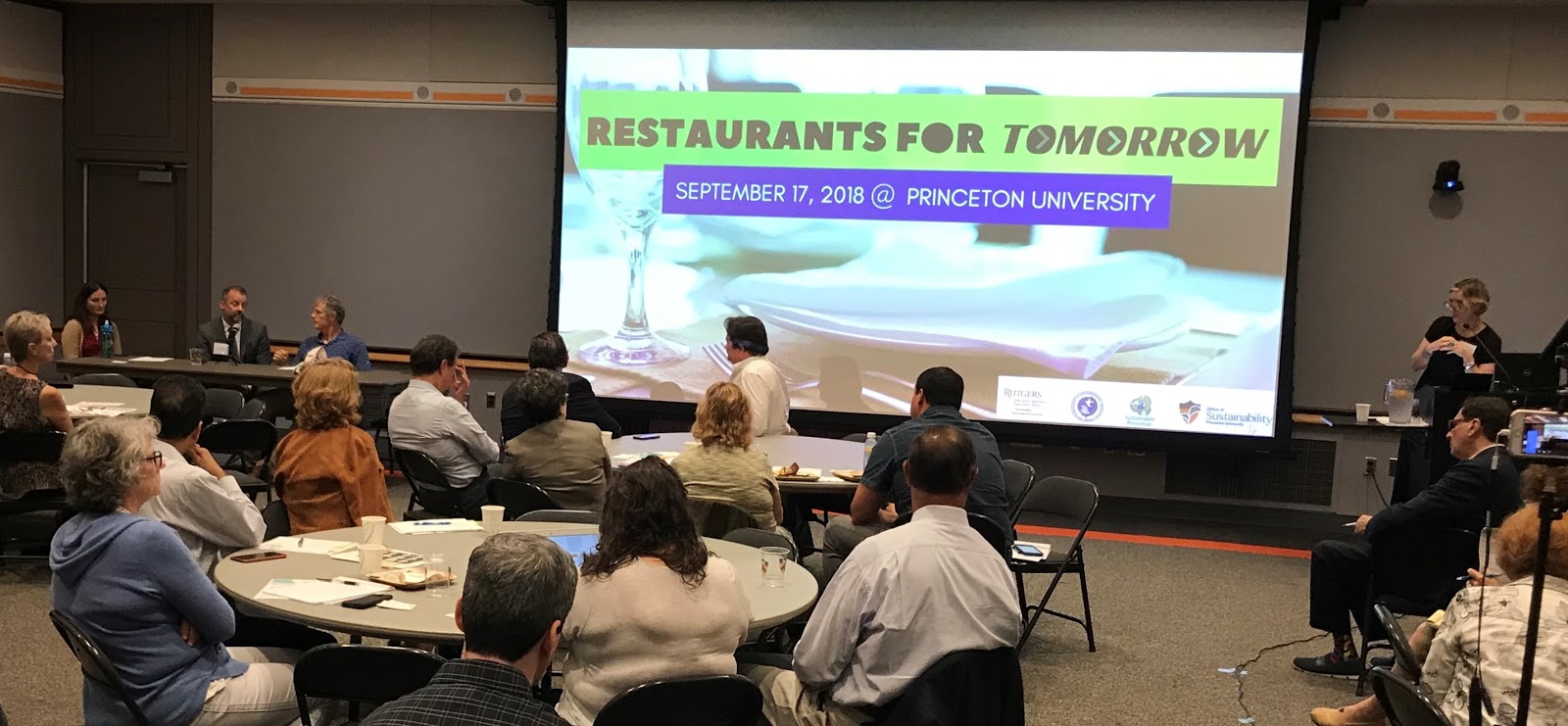Sustainability was on the menu at the Restaurants for Tomorrow workshop that was recently held at Princeton University’s First Campus Center.
A total of 60 attendees, including several Princeton area businesses, learned of New Jersey’s sustainability incentives, green best practices and upcoming food waste reduction requirements during the workshop that was held on Sept. 17.
In an effort to educate New Jersey’s restaurant industry, the New Jersey Department of Environmental Protection partnered with the Rutgers EcoComplex, Sustainable Princeton and the Princeton University’s Office of Sustainability to offer a free half-day workshop.
Princeton-based Joshua Zinder, AIA, Managing Partner of Joshua Zinder Architecture and Design, shared his post-event thoughts.
“As an architect with lots of experience in designing for restaurant and food-service venues, I found this event very interesting,” Zinder said. “The speakers were knowledgeable and engaging, covering a wide variety of issues relating to not just food service but food systems.”
Zinder continued, “We saw how local restaurants, and the town of Princeton, are looking at the big picture of the food industry- from farm-to-fork, to digestive system (of some type) and back to farm, and all the energy issues involved.”
Beyond attracting and retaining customers, sustainable practices also benefit a business’s bottom line.
According to a 2016 study by Deloitte and the nonprofit ReFED, the U.S. restaurant sector generates approximately 11 million tons of food waste annually, which equates to over $25 billion in disposal costs. There is ample opportunity for the restaurant industry to save money and grow profits by going green.
“The Restaurant for Tomorrow workshop organized by Sustainable Princeton and hosted at Princeton University, left me feeling excited and hopeful for the future of sustainability,” said Keith Levine, Senior Registered Environmental Health Specialist, Princeton Health Department. “This workshop brought together a perfect mix of local business owners, government officials, environmental professionals and scientists who presented useful and up-to-date information on restaurant and food sustainability.
Levine went on to commend the workshop.
“In addition to the informative Q&A sessions, I also appreciated taking a tour of Princeton University’s newly purchased commercial biodigester and learning how this unit will be used to recycle University food waste into nutrient rich organic material for the campus. I look forward to attending future events organized by Sustainable Princeton and thank them for their great work and steady dedication.”
Princeton was well-represented at the workshop, including C-Change, Fenwick Hospitality Group, Jammin’ Crepes,, Small World Coffee, the Terramomo Restaurant Group and four Princeton University eating clubs.
According to its press release, Sustainable Princeton, which was founded in 2012, is a nonprofit organization whose mission is to inspire the community to develop and implement solutions that positively impact the environment.
Their office is located at 1 Monument Drive, Princeton. For more information, visit sustainableprinceton.org.

